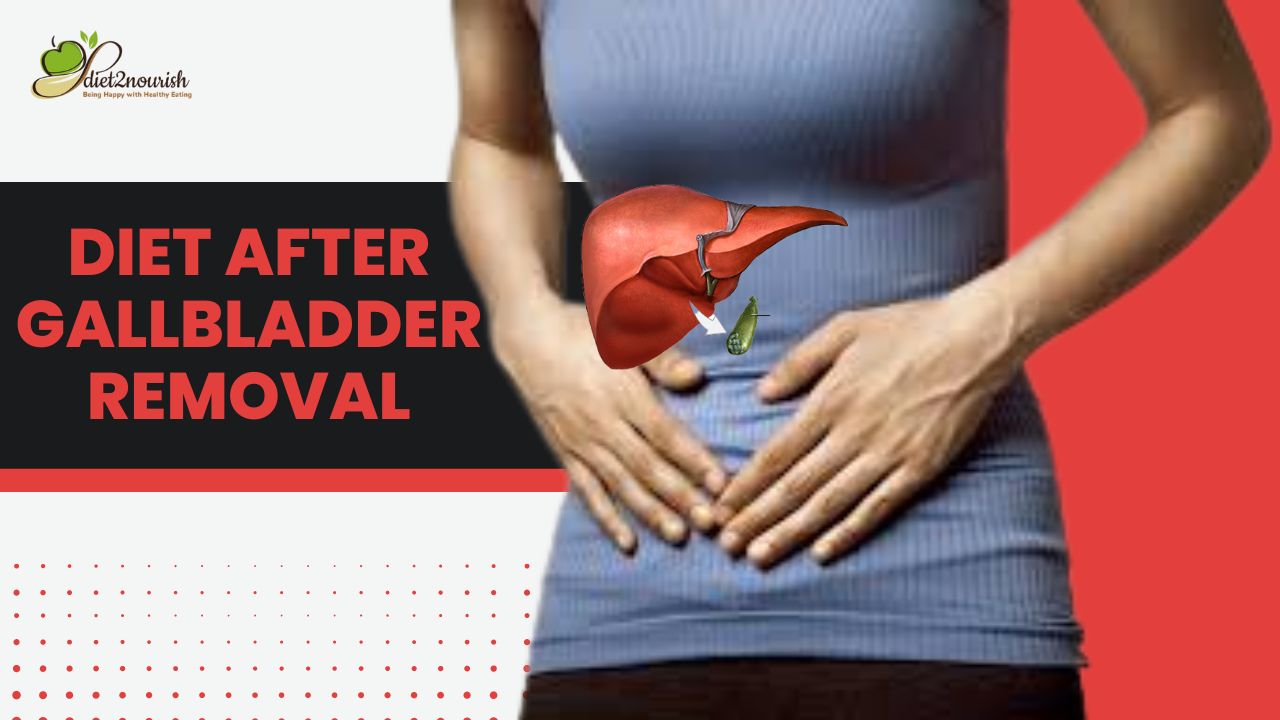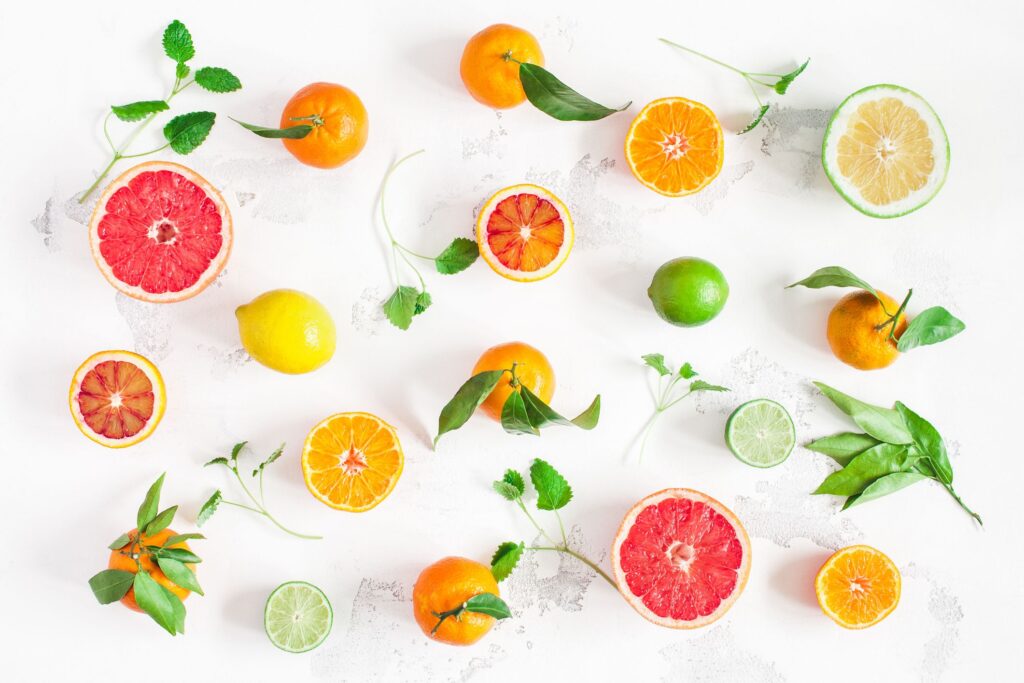Indian Diet After Gallbladder Removal
Stones have become so widespread that they affect 6 out of 10 persons. People of all ages are affected by kidney or kidney stone disorders. These kidney stones can be removed with medication or home cures, but the gall bladder can only be removed surgically. You can live a regular life after having your gallbladder removed. Still, you must follow a healthy and good diet under the guidance of a dietician. Today’s article will discuss Indian Diet After Gallbladder Removal.
What is Gall Bladder?
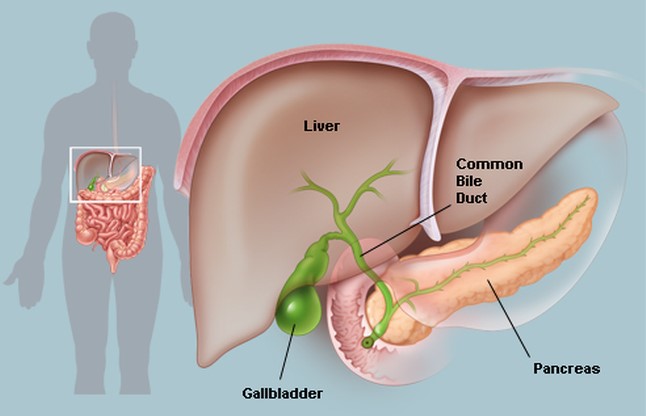
The gall bladder is a tiny pear-shaped structure beneath your liver. It assists your body in breaking down and digesting the fats you consume. However, it is not necessary for your survival. You may need to make certain dietary changes to compensate for this new shift in your body. You will be able to gradually incorporate some of these foods back into your diet over time.
The gallbladder Stone is classified into two types:
Cholesterol stones:
The most prevalent type of gallbladder color is yellow, commonly referred to as a cholesterol stone. Cholesterol stones are a mixture of cholesterol and other substances that cannot be metabolized.
Pigment stones:
Unlike cholesterol stones, these gallbladder stones are dark brown or black due to excess bilirubin.
Why is the gallbladder removed ?
Doctors may have proposed gallbladder removal for one of four reasons:
- Your gall bladder may not be emptying adequately due to a motion abnormality. Biliary dyskinesia is the medical term for this condition.
- If you have a gallstone, the stone may block the bile duct and prevent the gallbladder from functioning. Choledocholithiasis is the medical word for this illness.
- If the gallbladder is inflamed (a condition known as cholecystitis),
- If the pancreas is inflamed (a condition known as pancreatitis).
But there’s no need to worry about it because this Indian Diet After Gallbladder Removal can help you live healthier.
What happens after gallbladder removal ?
As previously stated, the gall bladder stores and concentrates bile before releasing it into the intestine as needed. Following gallbladder removal, bile produced in the liver is immediately discharged into the intestine. As a result, the bile content is low and constant, with no control.
Bile has laxative properties. Because there is no control over bile secreted in the intestine after surgery, the continual laxative impact of bitterness often causes diarrhea. The problem worsens if the patient consumes excessive fat-rich food or any food at once.
Your body struggles to metabolize the fat, resulting in nausea, vomiting, indigestion, flatulence, diarrhea, and other symptoms.
Dietary Guidelines Following Gallbladder Removal
- Do not begin eating solid foods right after surgery. To avoid stomach difficulties, gradually incorporate solid foods into your diet.
- Eat several little meals throughout the day of the Indian Diet After Gallbladder Removal.
- Eat no fried foods.
- Consider switching to a vegetarian Indian diet after gallbladder removal. Meats and dairy, particularly full-fat varieties, might be difficult to digest without a gallbladder. You must understand everything about switching in this section.
Foods to Include After Gallbladder Removal
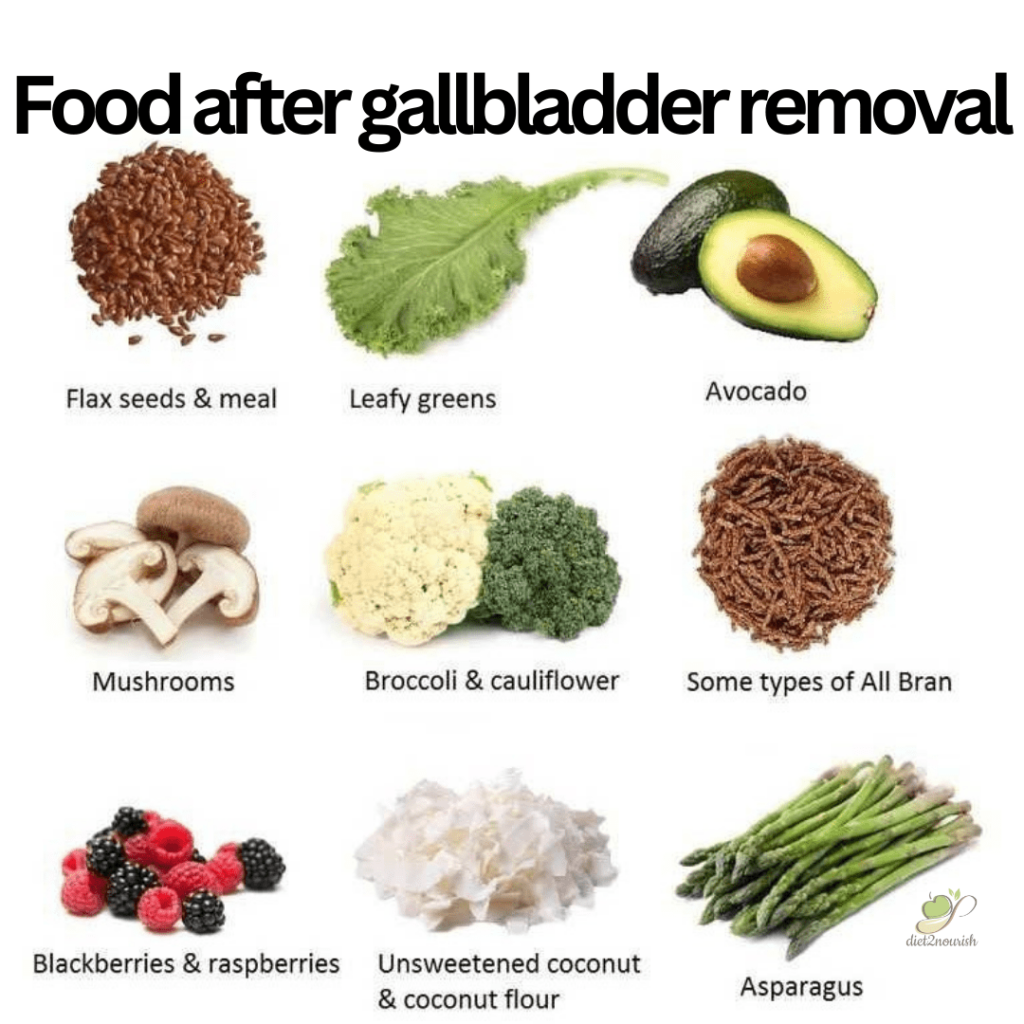
Following gallbladder removal surgery, the items you should include in your Indian diet are.
1. Eat a Low-Fat Diet:
After surgery, it is difficult to digest more fatty meals. As a result, you should consume low-fat foods such as vegetables, legumes, whole grains, and fruits.
2. Eat Light and Soft Foods:
After surgery, experts recommend that you eat light and soft foods. You should drink plenty of fluids at this time. Eating light, soft foods aids digestion.
3. Drink Plenty of Water:
Drinking plenty daily aids in quick recovery. Maintain your body’s hydration. If you don’t get enough water, supplement with vitamins and minerals. You also choose a fluid diet. It will also digest quickly, which can be beneficial.
4. High Fiber Foods:
In the absence of concentrated bile, fiber can aid digestion. Simply increase your intake gradually so you don’t overdo it after the surgery, as this can also create gas. Fiber and other nutrients, such as calcium, B vitamins, and omega-3 fatty acids, are beneficial. Following are some examples for high fiber food:
Oats, pulses, peanuts, chia seeds, fruit, vegetables, nuts, almonds, walnuts, cashews, and whole grains such as pasta, rice, bread, cereals, and so on are examples of these foods.
5. Vitamins, fruits & vegetables:
Because you are healing from surgery, you will require additional fiber. Incorporate plenty of nutrient-dense fruits and veggies into your diet. Antioxidants are high in vitamin A, fiber, immune-boosting vitamin C, and a variety of phytonutrients that can help with recovery and overall health.
Lentils, sunflower seeds, peanuts, tomatoes, avocados, oranges, lemons, kale, spinach, broccoli, cabbage, blueberry, blackberry, and raspberry are all examples.
Foods to Avoid after gallbladder removal
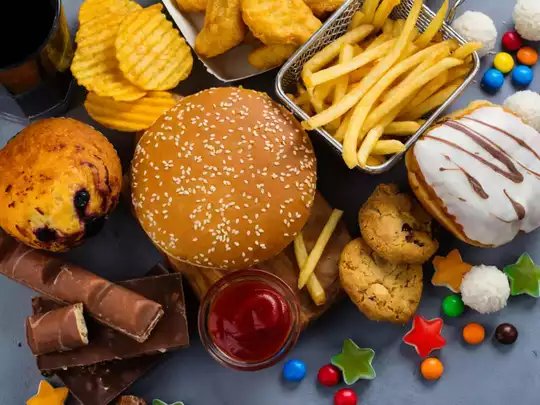
In the postoperative period, there are various dietary limitations. You should think twice before eating at a party-wedding at home. If diet and lifestyle are known, the condition can be avoided.
1. Make a distance from Solid Foods:
Do not begin eating solid foods right after surgery. To avoid stomach difficulties, gradually incorporate solid foods into your diet. Including a healthy Indian Diet After Gallbladder Removal can help you a lot.
2. Eat no fried foods:
Consider switching to a vegetarian diet. Meats and dairy, particularly full-fat varieties, might be difficult to digest without a gallbladder. You must understand everything about switching in this section. Avoid fatty, oily, processed, and sugary foods. Consuming these foods during Indian Diet After Gallbladder Removal can be dangerous, so it must avoid.
3. Avoid Sugar:
If you enjoy sweet foods, avoid them after surgery. After gallbladder surgery, avoid eating ice cream, pastries, and cookies until it completely healed.
4. Avoid Caffeine and Alcohol:
Caffeine contains acid, which might cause your stomach to produce more acid and cause the drain to run faster. This might result in abdominal pain and discomfort following gallbladder removal. Avoid energy bars that contain coffee, tea, soda, chocolate, caffeine, or energy drinks.
5. Avoid Fatty Meats:
Embrace the Indian Diet After Gallbladder Removal and avoidfatty meats that can wreck your digestive system. Such meat contains red meat, bacon, pork, and beef meats, among other things.
6. Dairy Products:
Full-fat dairy or milk products can be difficult for the body’s digestive system to acclimate without the gallbladder. Foods such as flour-fat cheese, butter, ice cream, full-fat yogurt, milk, and so on should be consumed in moderation.
7. Eliminate Processed foods:
This preserves them for a long time, but they are also easy to digest and provide little nutrients. Cakes, sugar cereals, white or processed bread, cookies, and other similar foods should be avoided.
How to lose weight after gallbladder removal surgery?
Losing weight is important to have a healthy body. Your weight determines your fitness. In addition, a healthy weight keeps a number of health issues away. So, if you have had a gallbladder removal process and want to lose weight. Here are some ways that you can do so:
1. Eat a variety of nutrient-rich foods:
You should eat healthy foods. Add fruits, vegetables, whole grains, lean proteins, and healthy fats in your diet. These foods are rich in nutrients. They can keep you full for long periods of time. It will reduce your calorie intake.
2. Portion control:
You should have to make proper portion sizes. Try to listen to your body’s hunger and fullness cues. Eat small and more frequent meals in the day. It can help your metabolism.
3. Limit processed and high-fat foods:
You should be mindful of your intake of processed foods. Cut back on fried foods and high-fat foods. They have bad fats. You should say no to sugary foods and drinks. They do not have any nutrients, just sugar! These can be hard to digest. They may lead to weight gain.
4. Drink a lot of water:
Drink plenty of water in your day. Water can help with digestion. It has a number of health perks. In addition, drinking water can help you with overall health. So, choose water over other drinks.
5. Be mindful of your eating habits:
You should try mindful eating by savouring each bite. It will help you eat your food slowly. Then, it is easier for your gut to digest. You must pay attention to your body’s signals of hunger and fullness. This can help prevent overeating.
6. Physical activity:
Along with a healthy diet, regular physical activity is crucial. It can help you lose weight fast. This is a healthy way to lose weight for the long run. You should do activities you enjoy. It can be walking, swimming, or dancing. This can help you with a healthy lifestyle.
7 days Diet chart After Gallbladder Removal with time
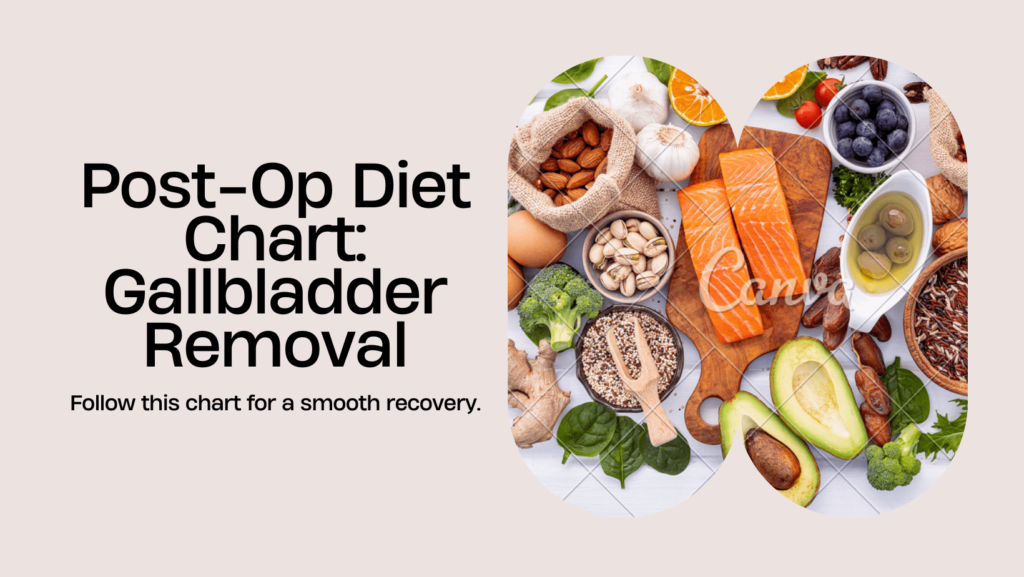
A diet chart after gallbladder removal can be helpful for you. It will help you heal and recover fast. This healthy meal plan will keep your weight in check. It is good for your entire well being. So, get ready to cook these yummy and healthy meals!
Day 1:
- Breakfast: Oatmeal with berries and sliced bananas topping
- Lunch: Cooked chickpeas (Chile) with steamed rice and salad
- Snack: A bowl of mixed fruit salad
- Dinner: Baked fish or steamed veggies and two rotis
Day 2:
- Breakfast: Mixed vegetable poha with a whole grain toast
- Lunch: Lentil soup (dal) with jeera rice and cucumber raita
- Snack: an idli with coconut chutney
- Dinner: Cooked green beans with two rotis and green salad
Day 3:
- Breakfast: Plain dosa with coconut chutney and sambar
- Lunch: Cooked zucchini and dal with one roti and a cup of rice
- Snack: Dalia made in skimmed milk
- Dinner: Cooked cauliflower and two rotis with boondi raita
Day 4:
- Breakfast: Smoothie with spinach, banana, and non-fat yoghourt
- Lunch: Mixed vegetable pulao with salad
- Snack: A bowl of watermelon
- Dinner: A bowl of Curry with some cooked brown rice
Day 5:
- Breakfast: Mixed vegetable paratha in olive oil with plain chutney or curd
- Lunch: Cooked brinjal with two rotis and an apple
- Snack: green tea with crackers
- Dinner: Baked fish with brown bread slices
Day 6:
- Breakfast: Avocado toast on whole grain bread
- Lunch: Rajma with cooked brown rice
- Snack: Mixed dry fruits
- Dinner: Baked turkey with sweet potato and green beans
Day 7:
- Breakfast: Egg white omelette with veggies
- Lunch: Mixed vegetable khichdi with plain curd
- Snack: A bowl of sliced pineapple
- Dinner: Grilled salmon with brown rice and broccoli
The Bottom Line
Having your gallbladder removed isn’t always as bad as it sounds. However, you should make a few dietary changes to avoid digestive difficulties while healing. Remember that you will likely only need to do so for a few weeks or months after the treatment. Following an Indian Diet After Gallbladder Removal seriously can make your digestive system healthier than you think.
Frequently Asked Questions (FAQs)
What are the worst beverages that should be avoided after a gallbladder removal surgery?
Answer:
After gallbladder removal surgery, it is important to avoid certain beverages as they can irritate the digestive system. It includes Alcohol as it can irritate the digestive system and cause discomfort. Caffeinated beverages such as coffee, tea, and soda must be avoided.
Additionally, Carbonated beverages like soda and sparkling water can cause gas and bloating. Sugary beverages such as fruit juices and sports drinks can cause diarrhea and other digestive symptoms in some people. Therefore, they must be avoided and excluded from the diet after a gallbladder removal procedure.
Which nutrients are best for recovery after a gallbladder removal procedure?
Answer:
After a gallbladder removal procedure, it is important to focus on nutrient-dense foods that support the healing process. For example Protein which is the most important nutrient for tissue repair and wound healing. Good sources of protein include lean meats, poultry, fish, eggs, dairy products, beans, and legumes.
Additionally, fibre is important for maintaining regular bowel movements and preventing constipation as they are a common side effect after gallbladder removal surgery. Good sources of fibre are fruits, vegetables, whole grains, nuts, and seeds.
Furthermore, Healthy fats, Vitamin C, Zinc etc are some of the necessary nutrients essential for recovery after gallbladder removal procedure.
Can I still eat dairy foods in the diet after gallbladder removal?
Answer:
All bodies are unique. Many people can still enjoy dairy products after gallbladder removal. On the other hand, some may have difficulty digesting them. Dairy is often hard on the gut. So, it is best to listen to your body. To confirm, you can take a little amount. See how it makes you feel. If you think you can digest it without seeing vague symptoms. Then, you can adjust your diet as per your needs.
How can I avoid gut issues with diet after gallbladder removal?
Answer:
It is normal to have digestive issues after gallbladder removal. To prevent them, you can take some steps. You can eat smaller and more frequent meals. This means you should avoid large and heavy meals. It can help you with all the digestive issues. It is also important to drink a lot of water. This can help your digestion process. You should add a lot of fibre-rich foods into your diet. They are good for the gut.
Will my diet be permanently restricted after gallbladder removal?
Answer:
You have to follow a good diet after gallbladder removal. It can help you heal and recover fast. In most cases, restrictions on meals are temporary. They can be slowly eased over time. So, Your diet will not be restricted forever after your gallbladder is removed. However, it is crucial for you to have a healthy eating pattern. It must suit your body and needs.

